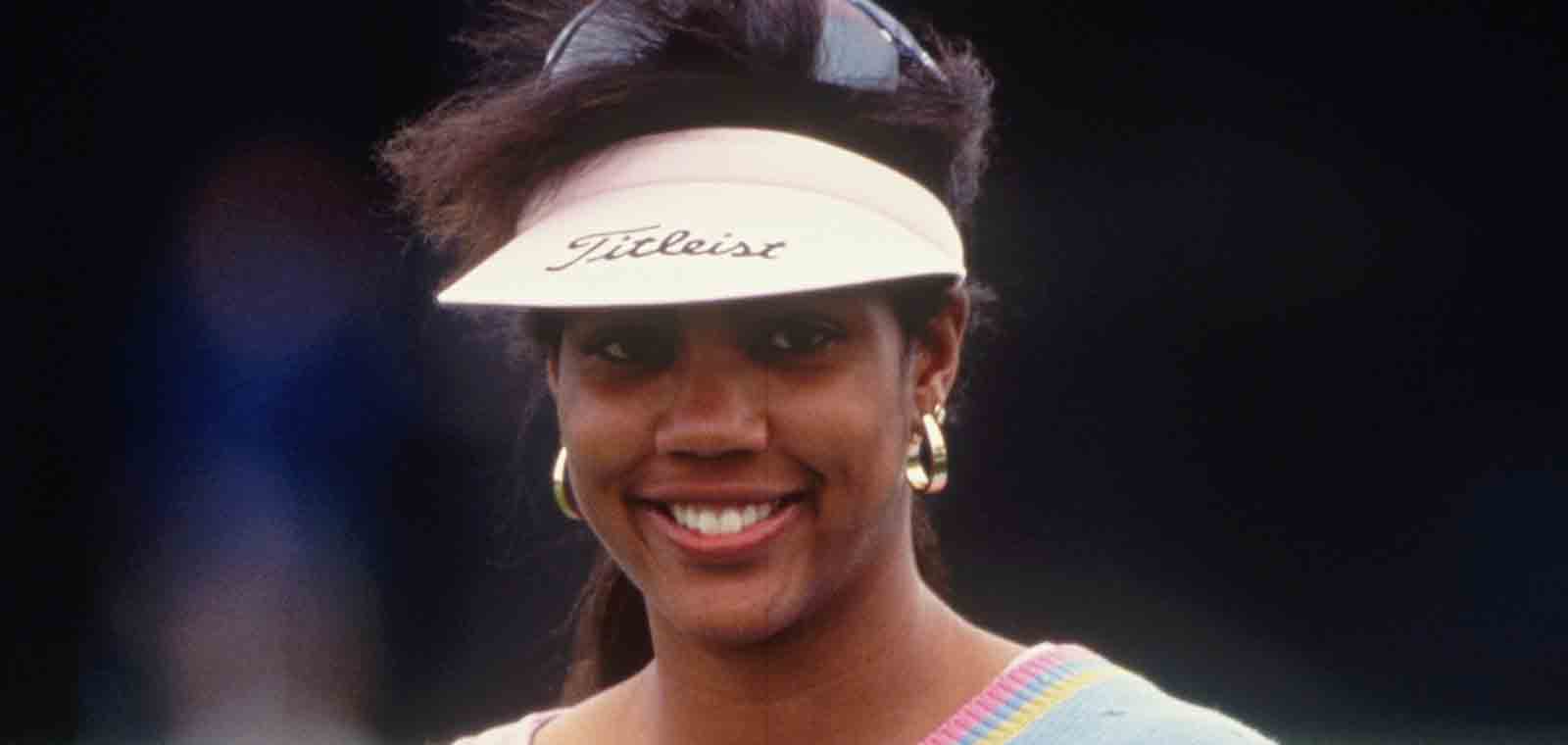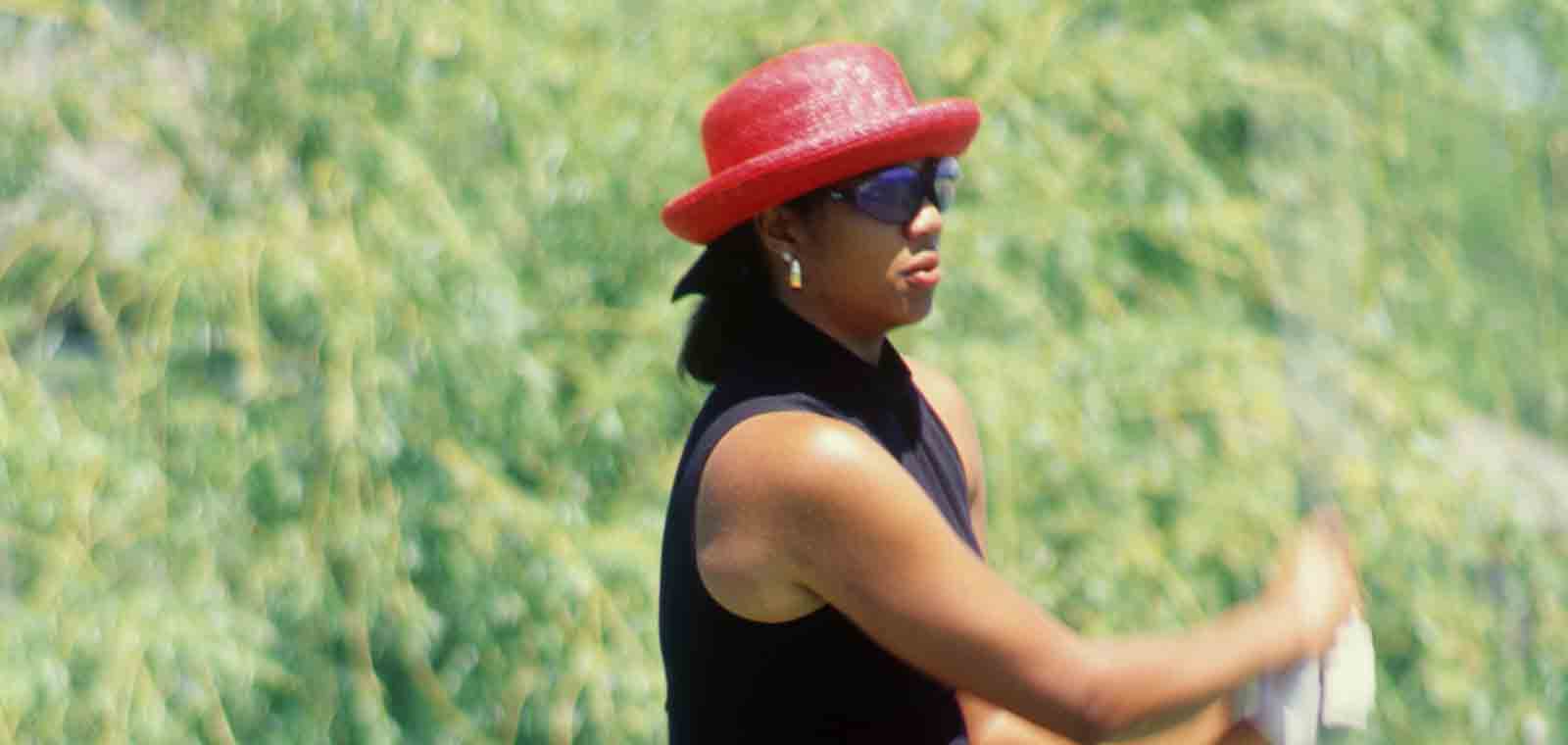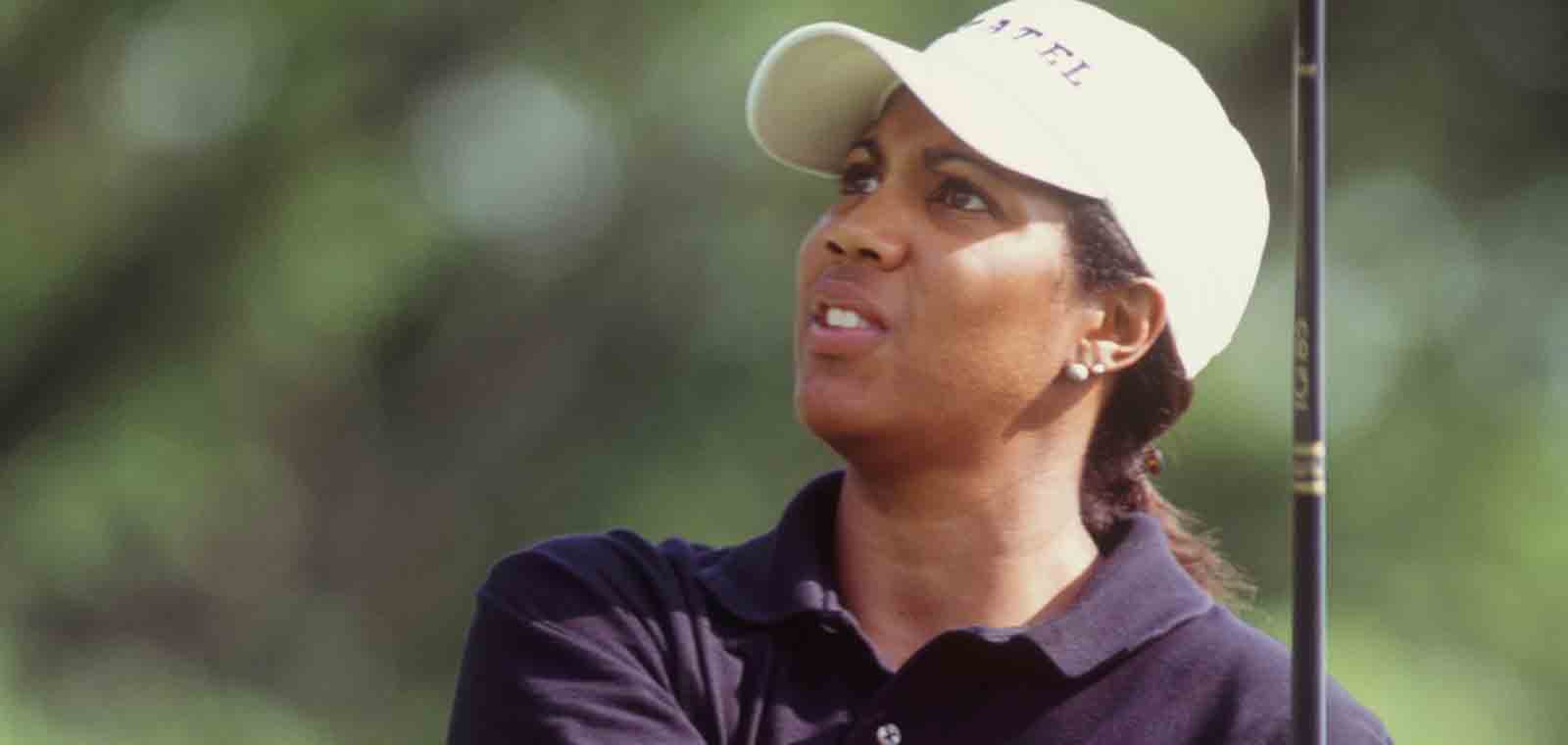There was never a doubt in her mind that she'd be a professional golfer. As a little girl walking down the brick stone sidewalks of Petersburg, Va., to get metal golf spikes installed on the soles of her buckskin saddle shoes, LaRee Sugg knew her destiny, and that vision became even clearer when her grandfather first took her to a local municipal course, only doing so because the country club at the time didn't welcome Black or Jewish members.
The golf bug struck Sugg when she was just six years old. Her grandfather, Dr. James C. Nelson, who was a professor and golf coach at Virginia State University was often Sugg’s babysitter, taking his granddaughter anywhere and everywhere, which usually included the golf course.
The family had their own golf cart that they'd zip around in, often playing the front nine of their home course over and over because of a mosquito infestation on the back nine that still haunts Sugg's memory.
"The thing I treasure the most is the time and relationship that I was able to facilitate with my grandfather,” Sugg recalls. “All the talking him and I would do because it would often just be him and I playing at Dogwood Trace (Golf Course) together, playing the front nine over and over again. We would play until dark…with him telling me life stories about him growing up in Princeton, New Jersey. He was a storyteller. He was teaching me all these things about perseverance and resilience and how to navigate being a Black woman in the world. We were doing all of that through these conversations on the golf course."
Dr. Nelson did everything he could to prepare his granddaughter for the real world. From forcing Sugg to make hotel reservations when they traveled to introducing her to her heroes Arthur Ashe and Renee Powell at a young age, Sugg's grandfather was committed to ensuring that she would be a woman of confident autonomy.





)
)
)
)

























